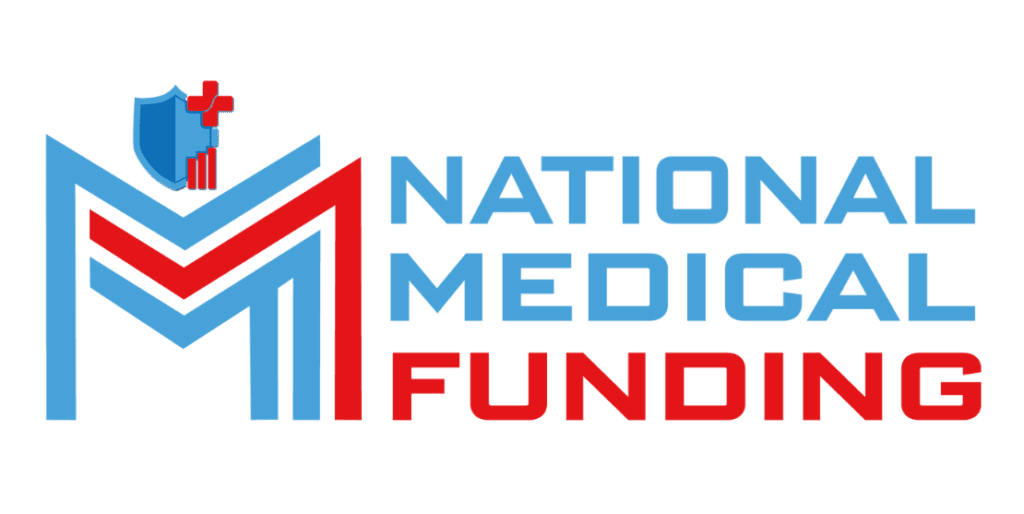
How Healthcare Lending Companies Can Help Red
Medical practices play a crucial role in society by pro...

Saturday and Sunday – CLOSED
support@nationalmedicalfunding.com



Starting your own private medical practice is more than just a professional leap—it’s a dream that combines your passion for healthcare with a desire to serve your community on your own terms. But bringing that vision to life requires strategic planning, especially when it comes to funding.
Whether you’re a physician, dentist, therapist, or other healthcare professional, navigating the world of healthcare financing can be confusing. This guide will walk you through choosing the right healthcare loan to launch your private practice and offer expert advice to help you avoid common financial pitfalls.
Starting a private healthcare practice offers a variety of benefits:
However, launching your own practice means you need to cover all startup and operational costs yourself—and that’s where the right healthcare lending options come into play.
Before choosing a loan, it’s important to understand what you’ll need to finance. Here’s a breakdown of typical startup costs:
Expense Category | Estimated Cost |
Clinic Lease or Purchase | $2,000 – $8,000/month |
Medical Equipment | $50,000 – $200,000+ |
Licensing & Legal Fees | $5,000 – $15,000 |
Insurance | $3,000 – $10,000 annually |
Staff Salaries | $10,000 – $50,000/month |
IT Systems & EHR | $300 – $1,200/month |
Marketing & Branding | $3,000 – $10,000 |

Your first step is developing a financial strategy:
Make use of resources like our Loan Duration Calculator to estimate repayment plans and monthly commitments.
There’s no one-size-fits-all solution in healthcare lending. Here are the main types to consider:
Loan Type | Use Case | Repayment Term |
Term Loan | Equipment, renovations, staffing | 1–10 years |
SBA Loan | Larger expenses like real estate | Up to 25 years |
Line of Credit | Flexible working capital | Revolving credit |
Healthcare Equipment Financing | Medical devices, tools, systems | 2–7 years |
Quick Loans | Emergency or short-term needs | A few months – 2 years |
Each option has its pros and cons. To get a deeper dive into quick-access funding, check out our blog: Discover Quick Loans and Smart Financing.
Not every loan fits every situation. Here’s how to match them:
If you’re navigating tough times, our blog on hardship loans for healthcare workers offers support strategies.
Lenders typically evaluate:
Pro Tip: Presenting a strong, organized application can increase your chances of fast approval.

Modern practices depend heavily on technology and equipment. Instead of using all your capital, finance these needs with healthcare equipment financing. Benefits include:
To learn more, explore this comprehensive guide on National Medical Funding’s Equipment Financing.
Understanding the larger landscape of healthcare financing can help you make better borrowing decisions. Key trends in 2025 include:
For more insights, don’t miss our blog on Top Healthcare Financing Trends.
Beyond startup capital, you’ll need to manage ongoing cash flow. Consider options like:
Our blog on 7 Smart Cash Flow Tips for Medical Practices shares actionable advice.

Here’s what to watch out for:
In addition to private loans, look into:
To expand your reach, check out How to Use National Health Finance Programs.
At National Medical Funding, we understand the unique needs of new practitioners. Whether you’re looking for a healthcare loan, quick loan, or equipment financing, our tailored solutions include:
Explore our full offerings here.
Turning your private practice dream into reality starts with securing the right financing. From equipment needs to working capital, there’s a loan solution tailored just for you.
Whether it’s healthcare equipment financing or quick access loans, the right move today can shape your clinic’s future.
Need help choosing the best loan? Let’s talk and get your private practice off the ground.
Medical practices play a crucial role in society by pro...
Delayed insurance reimbursements are a frustrating real...

Fuel your medical practice’s growth with financial solutions tailored to your needs. We’re here to support independent practitioners and group practices with strategies built for success.


Mon Fri: 8:00am – 6:00pm
Saturday: Closed
Sunday: Closed
Copyright © 2025 National Medical Funding